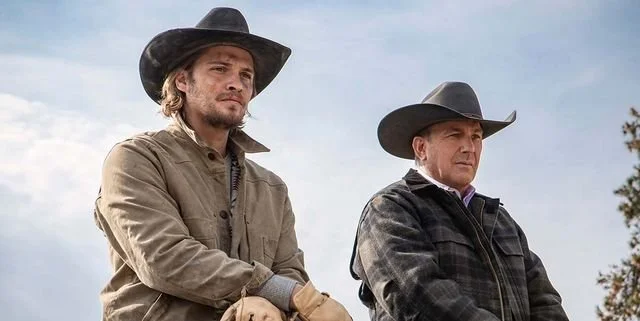YELLOWSTONE: AN EXPLORATION OF DICHOTOMY
Written By Jonathan Hansen
Yellowstone is a popular television drama series that has taken the world by storm. Created by Taylor Sheridan, the show is set in Montana and follows the life of John Dutton (played by Kevin Costner), a wealthy and powerful rancher who owns the largest contiguous ranch in the United States. The series explores a wide range of themes including family, power, greed, loyalty, love, and violence. However, one of the most striking aspects of Yellowstone is the dichotomy that exists within the show.
On one hand, Yellowstone is a beautiful ode to the natural world. The stunning landscapes of Montana and Wyoming serve as a constant reminder of the beauty and majesty of the American West. The show is filled with breathtaking shots of mountains, forests, rivers, and wildlife, reminding viewers of the importance of preserving these natural wonders for future generations.
On the other hand, Yellowstone is also a gritty and violent depiction of the world of organized crime and the struggle for power. The Dutton family is constantly embroiled in conflict with various other groups, including neighboring ranchers, developers, and Native American tribes. This conflict often turns violent, with characters resorting to extreme measures to protect their interests.
The dichotomy of Yellowstone can be seen as a reflection of the broader tensions that exist in American society. On the one hand, there is a deep reverence for the natural world and a desire to protect it for future generations. On the other hand, there is a constant struggle for power and control, which often leads to conflict and violence.
One of the most interesting aspects of Yellowstone is the way in which these two themes are intertwined. The Dutton family, despite their many flaws, are portrayed as stewards of the land. They are fiercely protective of their ranch and the natural beauty that surrounds it. However, this protection often comes at a great cost, as the family is willing to resort to violence to protect their interests.
Similarly, the conflict between the Duttons and various other groups often centers around issues of land use and resource management. While the Duttons see themselves as protectors of the land, others view them as greedy and selfish, seeking to hoard resources for their own benefit.
The more important dichotomy that Yellowstone explores is the conflict between ranchers and Native Americans in Montana, and it does a commendable job of exploring the views of both sides. The show provides a nuanced portrayal of the issues that are at the heart of this conflict, and it does not shy away from exploring the complexities and contradictions that exist on both sides.
The Dutton family, who are the ranchers in the show, are portrayed as complex and flawed characters. While they are fiercely protective of their land and the way of life that it represents, they are also shown to be willing to resort to violence to protect their interests. The show also portrays the Duttons as having a deep respect for the traditions and way of life of the Native American tribes that they share the land with. For example, John Dutton is shown to have a close relationship with Thomas Rainwater, the leader of the neighboring Native American tribe, and the two men share a mutual respect for one another.
At the same time, Yellowstone also provides a nuanced portrayal of the views of the Native Americans in the show. The Native Americans are portrayed as having a deep connection to the land and the natural world, and they are shown to be deeply troubled by the way that the Dutton family and other ranchers are exploiting the resources of the land. The show also explores the history of violence and exploitation that the Native American tribes have experienced at the hands of white settlers, and it acknowledges the deep sense of anger and injustice that many Native Americans still feel.
The show does an excellent job of portraying the conflict between ranchers and Native Americans as a complex and multifaceted issue, and it avoids simplistic portrayals of either side. Instead, it offers a nuanced exploration of the tensions and contradictions that exist on both sides of the conflict, and it challenges viewers to consider the complexities of the issues at stake.

